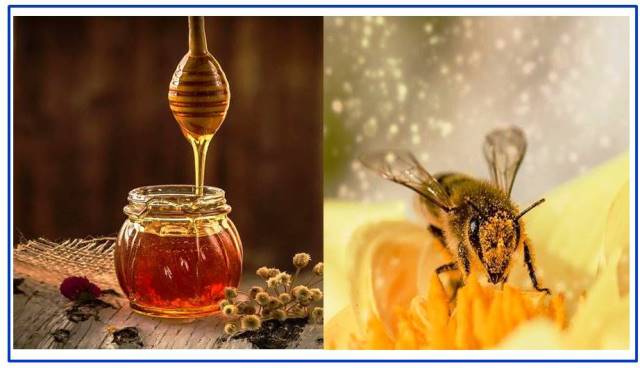Honeybee is flying insects are all native
to Eurasia but they shifted to other four continents through human beings. They
are well known due to preparation of perennial colonial nests from wax, vast
size of their colonies, and surplus production and storage of honey, which is
big surprise and prized foraging target animals, including honey badgers, bears
and human beings. Approximately 20000 types of honey bees found in world out of
which there are eight surviving kinds of honey bee with 43 sub types. History provides record of 7 to 11 species.
Best known honey bee is western honey bee
which is useful domesticated honey production and pollination of crops. Other
domesticated bee is eastern honey bee, which is grown in South Asia. Other
types of related bees produce and store honey and is kept by humans for that
purpose, including stingless bees, whereas only members of Eurasia are true
honey bees. In Modern technology, people also give value to wax due to making
soap, candles, lip balms, and other products from it.
A honeybee farm or wax is like a colony
in which there is one female bee is leader as queen and it has few thousand
follower male fees or drone bees upto tens thousands of female worker bees. But
their details vary among different types of honeybees. Common features of
honeybees are as under:-
Worker bees lay Eggs in one cell of wax
in honeycomb and produce and shape it. Queen Bee after using her spermatheca,
choose whether that egg is suitable to fertilize laid by worker bee. Drones
develop from unfertilized haploid eggs, whereas female bees develop from
fertilized diploid eggs. Worker bees produce royal jelly and feed larvae ,
later which switch to honey and pollen.
Sometimes, young worker bees called
"nurse bees" clean the hive and feed larvae. They begin to build comb
cells when, their royal jelly-producing glands begin to atrophy,
Worker bees group cooperate each in
finding find food and use a “dance” pattern (known as bee dance) through which
they communicate each other resources of food. These dances vary types of bees.
In case of resources very nearing to hive, they may also exhibit less but
specific dance which known as "round dance".
Tremble dances are also performed by
honeybees, which employee receiver bees to collect liquid from returning foragers.
Virgin queens do not mate with male
drones from their home hive or colony but go on breeding flights away from home
colony to drone bees congregation area, and mate with various drones before
coming back while Male drones die in after mating.
Domesticated species of honeybee are they
are often maintained, fed, and shifted by beekeepers. Modern hives have also
enabled beekeepers to shift bees, from field to field as crop requires
pollinating and allowing beekeepers to charge for pollination services they
provide, studying historical role of self-employed beekeepers, and producing
commercial honey.
Human being is using honey about 8000 years ago and in histories use of this item has been the best medicating food. In modern medical science. In ancient Egyptian, honey was used for treatment of wounds and was rubbed on it. As per US Department of Agricultural Nutrient database, one spoon of honey contains 64 calories. Honey contains 38.2% Fructose, 31.3% Glucose, 7.1% Maltose, 1.3% Sucrose and 17.2% water.
Natural honey is full of many nutritive ingredients which can relieve human being from many diseases like cough, stress, weakness, sleep disturbance, vision problems, bad breath, teething pain in children aging one year old, cough and asthma, hiccups, diarrhea and dysentery, vomiting, bedwetting and frequent urination, high blood pressure, obesity, jaundice, hangover relief and many other diseases, yet in some case this food will not provide all cure but will provide some relief.
China is at the top for producing natural honey and produce approximate 497000 metric tons in a year, followed by Turkey which produce 117000 metric tons per year and Iran producing 78500 metric tons per year. Whereas India is ranking at 7 number for producing honey about 68100 metric tons and Pakistan is at 49 number producing 4398 metric tons in a year.
















0 Comments
Please do not enter any spam link in the comments box